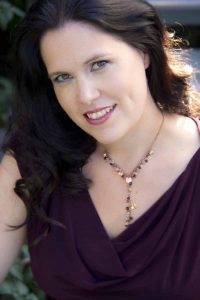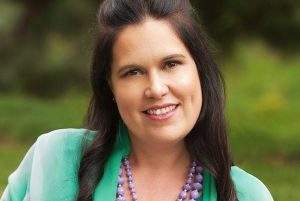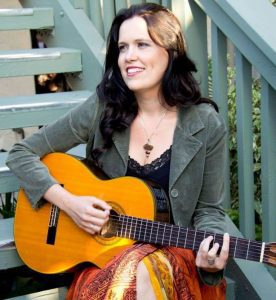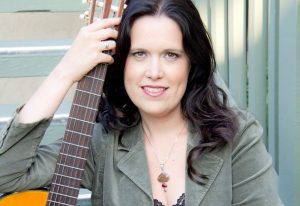 As a third culture kid, Bethany Kelly’s fascinating childhood was spent across Europe, South America and Asia, her upbringing and worldview shaped by travel, adventure, service and philanthropy.
As a third culture kid, Bethany Kelly’s fascinating childhood was spent across Europe, South America and Asia, her upbringing and worldview shaped by travel, adventure, service and philanthropy.
Bethany spent over a decade as a creative director and project manager in a non-profit organization and was responsible for managing the products division. She managed an international team of creative professionals, directing development and production of around 300 pages of content each month.
A debilitating breakdown in her health forced her to stop and look deeply at her own life. After recognizing how disconnected to herself she had become, she stepped into the role of creative director of her own life. Sweeping change in her life and the creation of her own production business is the result. Today, she mixes her professional experience and ability with her creativity as she supports authors in creating amazing books and products that stand out in the marketplace and generate profit.
INTERVIEW HIGHLIGHTS
KIMBERLY: PublishingY is your area of expertise, so for somebody who is ready to self-publish what is the process they are going to have to go through?
BETHANY: Okay, the process is a beautiful one, and it is also one that usually takes a little more time and ends up being a lot more work than most people anticipate. People think that writing the book is the work. And yes, it is an incredible part of the work, but once you’re done, there is a lot of steps that need to happen between the manuscript being complete and you holding your book in your hand. I think a lot of people somehow think this sort of magically and automatically happens, and it doesn’t. The process is specific, and every step is important along the process.
You need an editor who is going to edit your book so that it is free from errors and flows well. The content is organized well so that people have a great experience when they read your book, and they can understand, benefit from and assimilate your content. You will need the cover designed. You want to choose a cover design that is going to be captivating and going to be interesting, you want the title that is going to be a winner and make people go to pick up the book. What you have on the back of the cover is also hugely important. You want that to be again something that is going to motivate someone to buy the book, pick it up and read it. The interior needs design as well. There are parts of the book that are called the front matter and the end matter, pieces that go before the book starts and after the book ends, that makes for a very professional looking book. You will want to proofread after it is designed, and there are ISBN numbers to put.
The whole point of being a self-published author is that you have control over the whole process. So I recommend getting support to help you create a really beautiful, well-written book that does not have mistakes in it, and that you were going to be really proud of forever.

KIMBERLY: So, being a published author, what do you think is the bigger picture? What can they expect once they are published authors?
BETHANY: The main thing that it does for you is it increases your credibility and visibility. To be able to put ‘author’ as one of your credentials or one of the things that you have done works tremendously to your advantage in terms of credibility; not everybody is an author. It is actually a lot of work to become an author and publish a great book. So, when you join the ranks of authors, you are one of a smaller group of people. Not only are you an expert, but you have actually taken your expertise and put it into the written book in a way that you can distribute that information to so many more people.
In terms of credibility, people have said that it is the best business card around in terms of being able to get speaking engagements or interviews or to expand the scope of your business or your reach; it’s huge. It also gives you more visibility. You are going to get people having a small experience of you, hearing some of your story, getting a taste of your work at sort of a very low price point, and that will wet their appetite. It will connect people to you, and it will expand your circle of influence, so we can be a tremendous and terrific tool in your arsenal.
KIMBERLY: In your opinion, what comes first? Is it the book that comes first or the personal platform creation or maybe it’s both or maybe just depends on what the goal is?
BETHANY: Either way yet the goal is to have a platform. As an author, you need a platform. You need a large platform to really sell your book. Now if you’re just writing a book for credibility, then you might be able to get away with doing a book first and then building the platform. I have seen people do it, but the important thing that you should be thinking about from the second you decide to write a book is, ‘How am I going to build my platform? And how am I going to communicate effectively with this platform?’ And that is a lot of what you do, Kimberly, right?
KIMBERLY: Yes, the goal is to create the whole piece, and I’m going to define really quick what a platform is in case somebody hasn’t been over to my website to see the whole process. One thing that we have to remember, even if you go with the traditional publisher, they are not doing your marketing for you. So you still need to have a platform. I look at a platform as everything from your social media, everything from Facebook and Twitter to LinkedIn and all of those beautiful social media sites, in addition to potentially having a podcast and speaking engagements. You have to look at it as a full picture so that you know that you have people following you on all levels, so that you have somebody to sell your book to, essentially.
BETHANY: I think people don’t realize this and think that if they get their book picked up by a publisher, then the publisher is going to handle the marketing, and nothing could be further from the truth. If you get one of the really big five publishers, they probably will have an order that handles some of the marketing but the majority people of that publish with traditional publishers do not have marketing as part of the service. People confuse marketing with distribution, and what a publisher does is distribution for you. They will typically distribute to bookstores but if nobody knows about you or has heard about you, nobody is going to buy your book. So what an author has to realize from the very moment that they decide to write the book is that they have to start marketing and promoting their book. You may get the help of a publicist but the publisher’s job is to create the book and distribute it. The author’s job is to promote and market the book, and this principle exists whether you’re self-publishing or publishing traditionally.
KIMBERLY: So true, and I will say this: if you can do your marketing ahead of time, do your platform and maybe do your first book as self-published, and then have a big platform, then you will get noticed and then maybe a big publisher will pick you up. That platform still needs to be there, to remind you.
BETHANY: Absolutely, and for anyone who is going to be an author and is looking to be picked up by a traditional publisher, the most important thing that traditional publisher looks for is the size and quality of their existing platform. That will determine whether or not authors get picked up. So no matter who you are and no matter where you are, you need that platform.

KIMBERLY: You briefly touched on titling our book. As authors, we get really tight to what our content is which is great, but a title is the thing that is going to make people pick up the book, right?
BETHANY: Titles need to be sharp, punchy, snappy, and to the point. One of the biggest giveaways to a self-published book is an extremely long title. The title should be between two and five words and a subtitle can be longer. The subtitle can be more descriptive and about the title but the title should be short and punchy. A one-word title is brilliant, a two-word title is better, five words is as long as it should ever be. So if you want to actually find a title that is going to be a winner, come up with something clever and short.
KIMBERLY: And if someone isn’t working with some fantastic creative director like you, Bethany, and they are trying to come up with their own title, here is just a little tip. Come up with ten and then run a Facebook ad, one for each title, and see which one gets the most hits, and that’s an easy and not too expensive way to get an interesting opinion across the board from people that you don’t know. Everyone you do know is going to love titles no matter what, so this way you can get out to the masses and do a quick test.
BETHANY: One thing that is really important, whether it’s clearing people on Facebook ads or getting input on your book, you want to get input from the people that you are writing the book for. I noticed that a lot of authors don’t think about this until they are finished with the book. Whether you are writing fiction or nonfiction or a children’s book or whatever, you need to know who the book is for. Who is the audience? Who is reading the book? Who are these people and what is the problem that they have but this book is going to solve? When are they going to know when they are done with this book? These are the kind of people that can give you fantastic input and information about things like your title, your subtitle, the look of the cover. Because they are actually going to be the people who you want to buy and read the book and who are going to most benefit from the book. So knowing who your market is and knowing who you are writing this book for is crucial.
KIMBERLY: What are you seeing happening with audiobooks?
BETHANY: Audiobooks are great especially when they are done well. When you are browsing a book on Amazon and you see there is a paperback version, a Kindle version, and an audiobook version of the book, that automatically just screams quality. Somebody would not invest the time, money, and effort into creating all three unless they knew that their book was really good. So having an audiobook can be great for visibility and credibility. If your audience prefers their information through listening rather than through reading, it can be a great solution for people that use audiobooks in the car.
I would recommend though that you get professional support for creating an audiobook. It is not as simple as it sounds. If you just expected to sit down with your microphone and laptop and create a high-quality audiobook, you would be disappointed. It can be a great exercise, in fact, having you read your entire book out loud as an author can be brilliant in terms of finding holes or places where changes are needed. I recommend every author read their book out loud to themselves and get support there too because it expands your range of people that will be exposed to your book, and you want them to have a great experience of it.
INTERVIEW TWEETABLE



